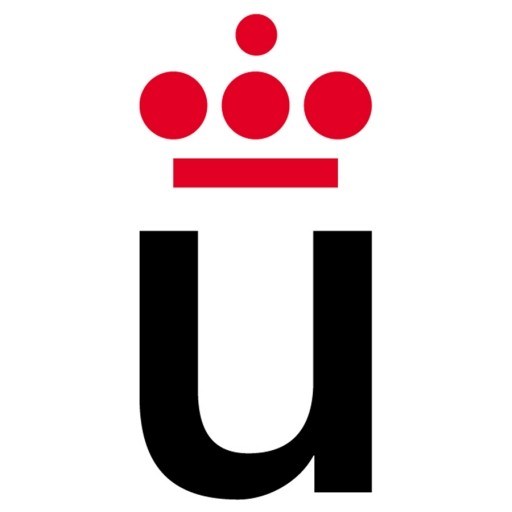Environmental and Chemical Processes degree program at King Juan Carlos University offers students a comprehensive education in the fundamental principles and advanced techniques related to environmental management and chemical processes. The program is designed to prepare graduates to address the growing demands of sustainable development, environmental protection, and innovation within the chemical industry. Throughout the course, students acquire in-depth knowledge of chemistry, environmental sciences, and engineering, enabling them to analyze, design, and optimize chemical processes with a focus on minimizing environmental impact. The curriculum includes core subjects such as chemistry, physics, mathematics, and biology, alongside specialized modules in environmental engineering, water and air quality management, waste treatment, and renewable energy sources. Practical laboratory work and field projects are integral components of the program, providing hands-on experience and fostering problem-solving skills in real-world scenarios. Students also have opportunities to participate in internships with industry partners and environmental agencies, enhancing their professional readiness and networking capabilities. The program emphasizes sustainable practices, regulatory compliance, and the development of innovative solutions for environmental challenges. Graduates will be equipped to work in various sectors, including environmental consulting, chemical manufacturing, waste management, water treatment facilities, and governmental agencies responsible for environmental policy and regulation. The academic staff comprises experienced experts in chemical engineering and environmental sciences, ensuring high-quality education and research opportunities. The degree aims to produce environmentally responsible professionals who can contribute to the sustainable development of society through scientific knowledge and technical expertise in chemical processes. Overall, the Environmental and Chemical Processes program at King Juan Carlos University is committed to fostering environmentally conscious engineers capable of leading the transition towards more sustainable industrial practices and environmental stewardship.
The Bachelor’s Degree in Environmental and Chemical Processes at King Juan Carlos University offers students a comprehensive education in the fundamental principles of chemistry and environmental science, preparing them for careers aimed at promoting sustainable development and environmental protection. The programme integrates theoretical knowledge with practical skills, enabling graduates to address complex environmental challenges through innovative chemical solutions. Throughout the degree, students engage in a multidisciplinary curriculum that covers core areas such as organic and inorganic chemistry, physical chemistry, environmental chemistry, chemical engineering, and environmental management. Emphasis is placed on understanding the chemical processes that occur naturally and anthropogenically within ecosystems, as well as the development of technologies to monitor, analyze, and remediate environmental pollutants.
Students participate in laboratory practices, fieldwork, and research projects, which foster hands-on experience and technical proficiency. The programme also explores topics related to renewable energy sources, waste management, water treatment, air quality control, and sustainable industrial processes. Special modules focus on environmental legislation, risk assessment, environmental impact assessment, and the development of environmentally friendly products and processes. Graduates are equipped to work in various sectors, including environmental consulting, public administration, industry, and research centers, where they can contribute to designing policies and solutions that minimize ecological footprints and enhance the quality of life.
The degree encourages critical thinking and problem-solving skills necessary for adapting to rapid technological and environmental changes. It also provides a solid foundation for students interested in pursuing postgraduate studies or research careers in environmental sciences or chemical engineering. The interdisciplinary approach of the programme ensures that students gain a holistic understanding of how chemical and environmental processes interact and influence each other. Overall, the Bachelor’s Degree in Environmental and Chemical Processes prepares students to become responsible professionals committed to developing sustainable solutions for today’s environmental challenges.
Program requirements for the Bachelor's Degree in Environmental and Chemical Processes at King Juan Carlos University include a combination of compulsory and elective courses designed to provide students with a comprehensive understanding of environmental and chemical engineering principles. Prospective students are generally expected to have a strong background in science and mathematics, particularly in chemistry, physics, and mathematics at the secondary education level. The admissions process requires submission of high school transcripts, and applicants may need to pass an entrance examination or meet specific academic criteria as stipulated by the university's admissions office.
Once enrolled, students are required to complete a specified number of credit hours that encompass core courses such as Organic Chemistry, Physical Chemistry, Chemical Thermodynamics, Process Engineering, Environmental Pollution Control, Waste Management, and Environmental Impact Assessment. In addition to theoretical coursework, students must participate in laboratory sessions to develop practical skills in chemical analysis, process simulation, and environmental monitoring.
The program also mandates participation in internships, which may be completed in collaboration with industry partners or research institutions, to provide real-world experience in environmental and chemical processes. This practical training is essential for understanding commercial applications and regulatory compliance in the field. Furthermore, students are expected to undertake a final degree project or thesis, which involves research and the application of learned skills to solve real environmental or chemical engineering problems.
Language proficiency requirements may include a demonstrable knowledge of English, as some courses are offered in English and the program encourages participation in international exchanges or double-degree opportunities. Students must comply with university regulations, including attendance policies, academic integrity standards, and safety protocols in laboratories. Overall, the program aims to produce graduates equipped with both theoretical knowledge and practical skills necessary to pursue careers in environmental management, clean energy, pollution control, or further research in chemical sciences.
The financing of the Environmental and Chemical Processes Degree at King Juan Carlos University is primarily based on a combination of public funding, student fees, and institutional support. As a Spanish public university, most of the program's funding is derived from government budgets allocated to higher education, which cover operational costs, faculty salaries, facility maintenance, and academic resources. Tuition fees for this program are established in accordance with the regulations set by the Comunidad de Madrid and the university's policies, ensuring affordability for domestic and international students. These fees contribute to the sustainability of the program and facilitate access to high-quality education in the fields of environmental science and chemical engineering.
Additionally, students are encouraged to seek financial aid opportunities that are available through national and regional scholarship programs, grants, and student loan schemes. The university also collaborates with industry partners and environmental organizations that may sponsor research projects, internships, or scholarships, thereby supporting students financially and practically during their studies. Research funding plays a crucial role in enhancing the educational experience and advancing the program's academic quality, often obtained through national research grants or European Union funding initiatives aimed at promoting sustainable development and scientific innovation.
Furthermore, King Juan Carlos University offers various financial aid programs targeted at alleviating the economic burden for students, such as fee waivers, partial scholarships, and working opportunities within the university. These measures are designed to promote inclusivity and broaden access to the program for students from diverse socio-economic backgrounds. International students may also have access to specific scholarships from the Spanish government or international organizations to facilitate their participation in the program.
Overall, the financing structure of the Environmental and Chemical Processes degree at King Juan Carlos University ensures a mix of public funding, tuition fees, research grants, and external sponsorships, enabling the university to maintain high standards of education and research while providing accessible opportunities for students to pursue their academic and professional goals in the environmental and chemical sectors.
The Bachelor's Degree in Environmental and Chemical Processes at King Juan Carlos University is designed to prepare students to understand and manage the complex chemical and environmental issues facing our world today. The program combines fundamental principles of chemistry with environmental science, allowing graduates to address challenges related to pollution, waste management, sustainable development, and the conservation of natural resources. Throughout the course, students acquire a solid foundation in chemistry, physics, biology, and environmental sciences, enabling them to analyze and develop solutions for real-world problems involving chemical processes and environmental impact.
The curriculum typically includes modules on analytical chemistry, inorganic and organic chemistry, environmental chemistry, chemical process engineering, renewable energy sources, waste treatment technologies, and environmental monitoring. Students also gain practical experience through laboratory work, field trips, and possibly internships with industry or environmental agencies. This hands-on approach ensures that graduates are well-equipped with the technical skills necessary for careers in environmental protection, chemical process industries, research, and regulatory agencies.
Graduates of this program are capable of working in various sectors, including manufacturing industries, environmental consulting firms, public administration, and research institutions. They can contribute to the development of sustainable chemical processes, improve pollution control techniques, and promote environmentally friendly technology innovations. The program also focuses on fostering a sense of responsibility towards environmental sustainability, encouraging students to pursue continuous learning and professional development in the evolving field of environmental and chemical sciences.
King Juan Carlos University emphasizes a multidisciplinary approach, encouraging collaboration between chemistry, engineering, and environmental science faculties, reflecting the interconnected nature of environmental and chemical problems. The program is designed to be aligned with current industry standards and environmental regulations, ensuring that graduates are prepared to meet the demands of the job market. Additionally, students often have opportunities to participate in research projects, cooperate with environmental organizations, and engage in international exchange programs, broadening their academic and professional perspectives.
Overall, the Bachelor's Degree in Environmental and Chemical Processes at King Juan Carlos University offers a comprehensive education that combines theoretical knowledge with practical skills, preparing students to be innovative and responsible scientists and engineers capable of making significant contributions to environmental protection and chemical process optimization.









